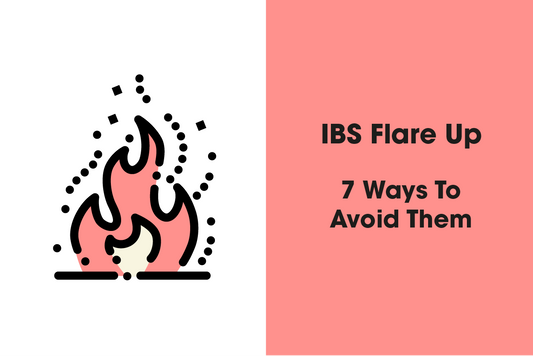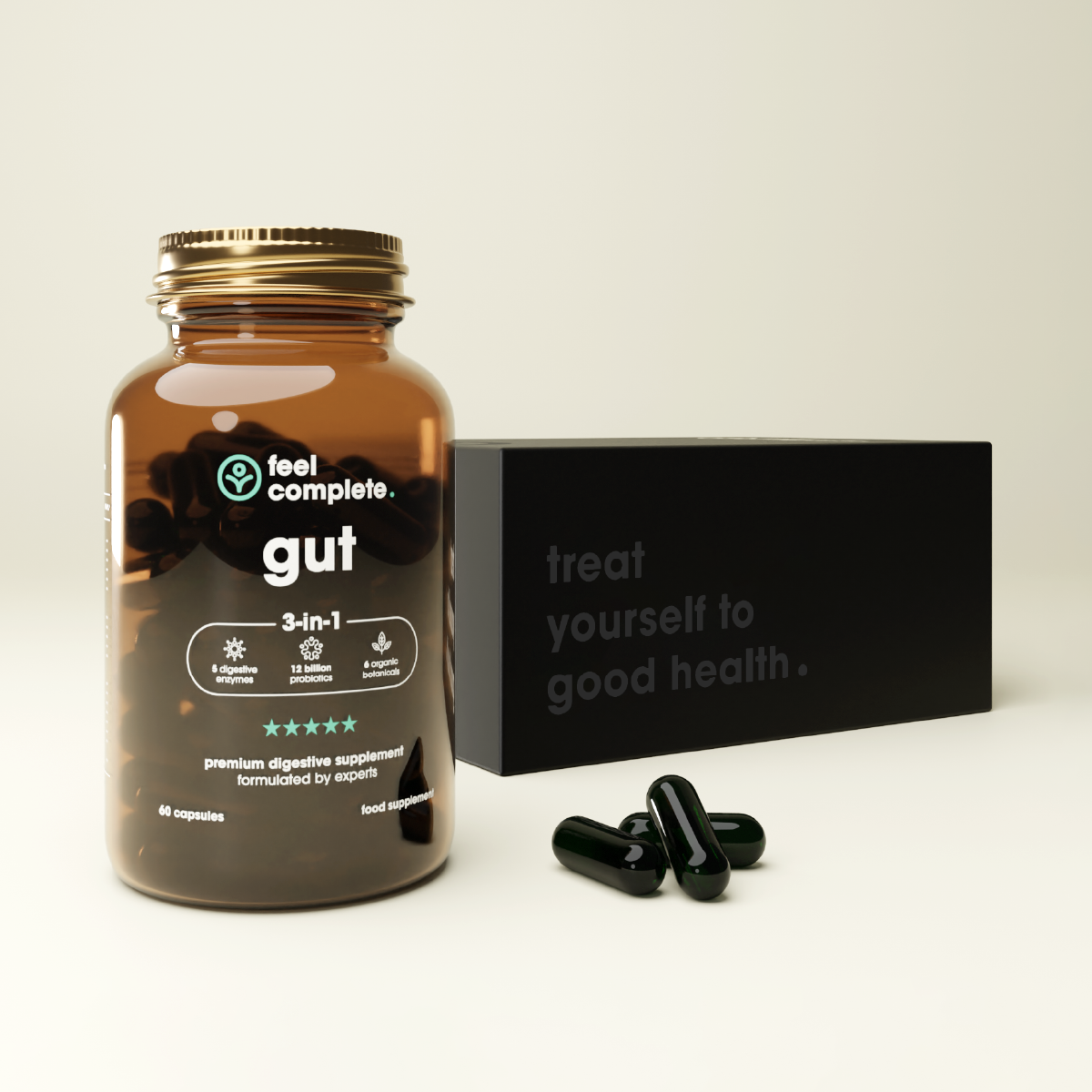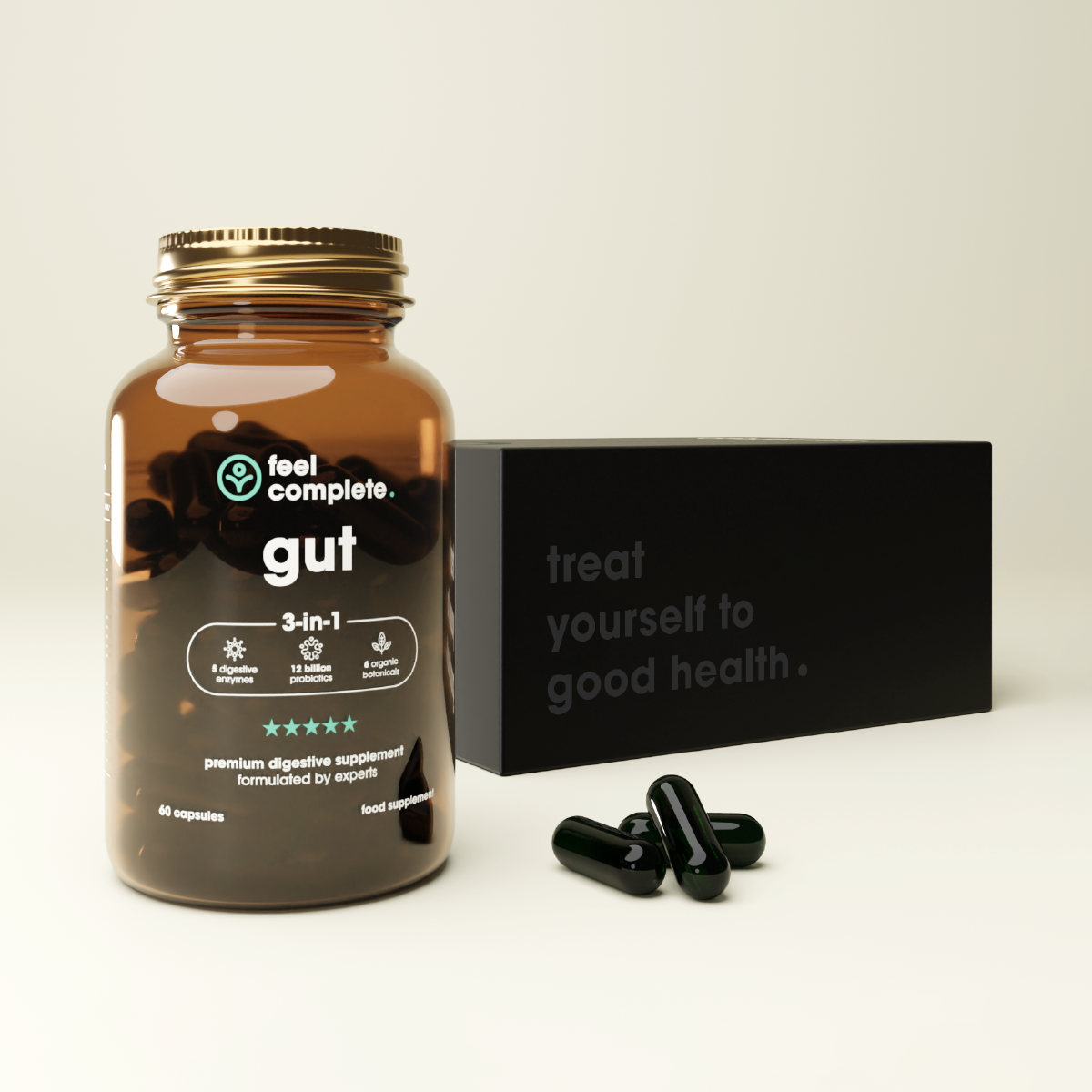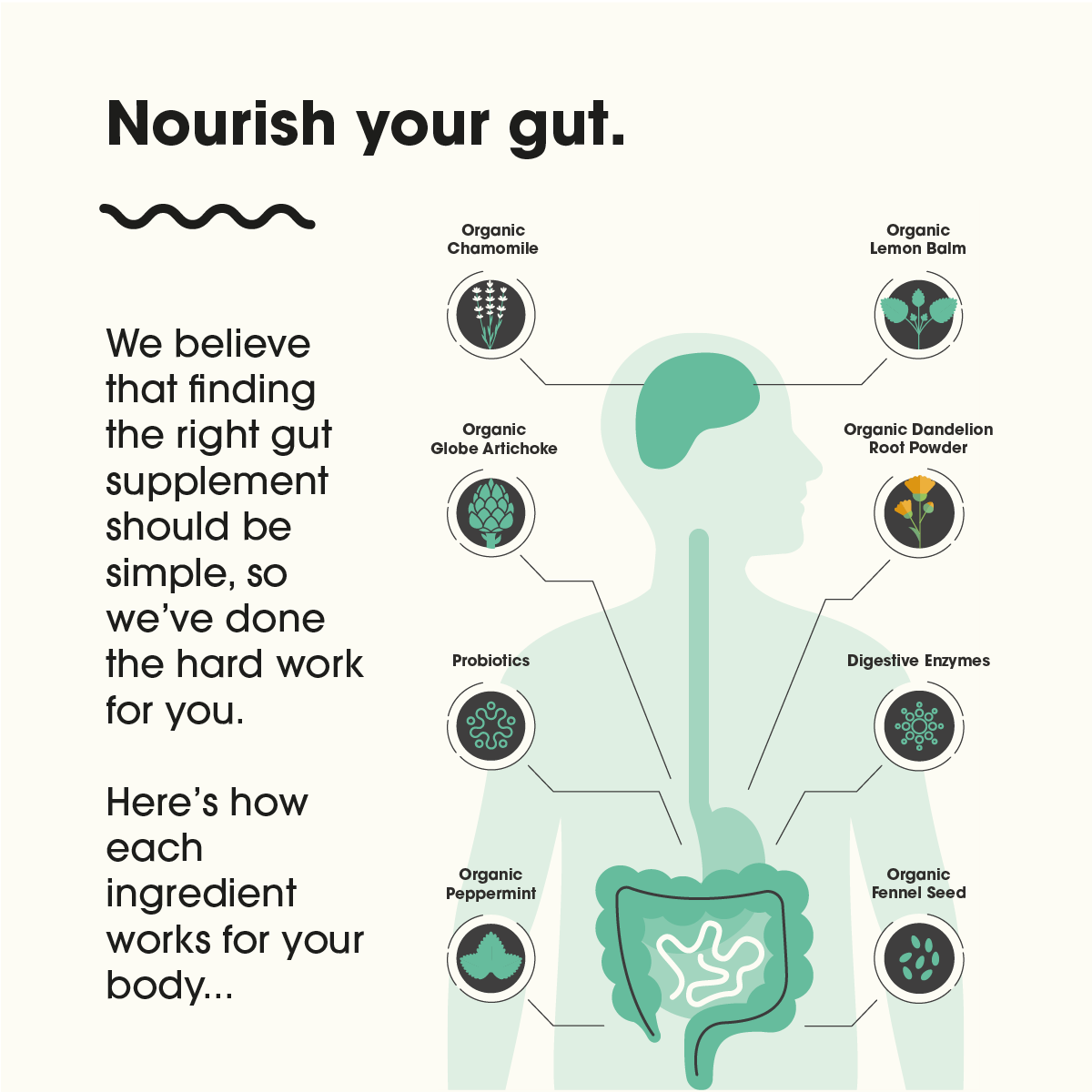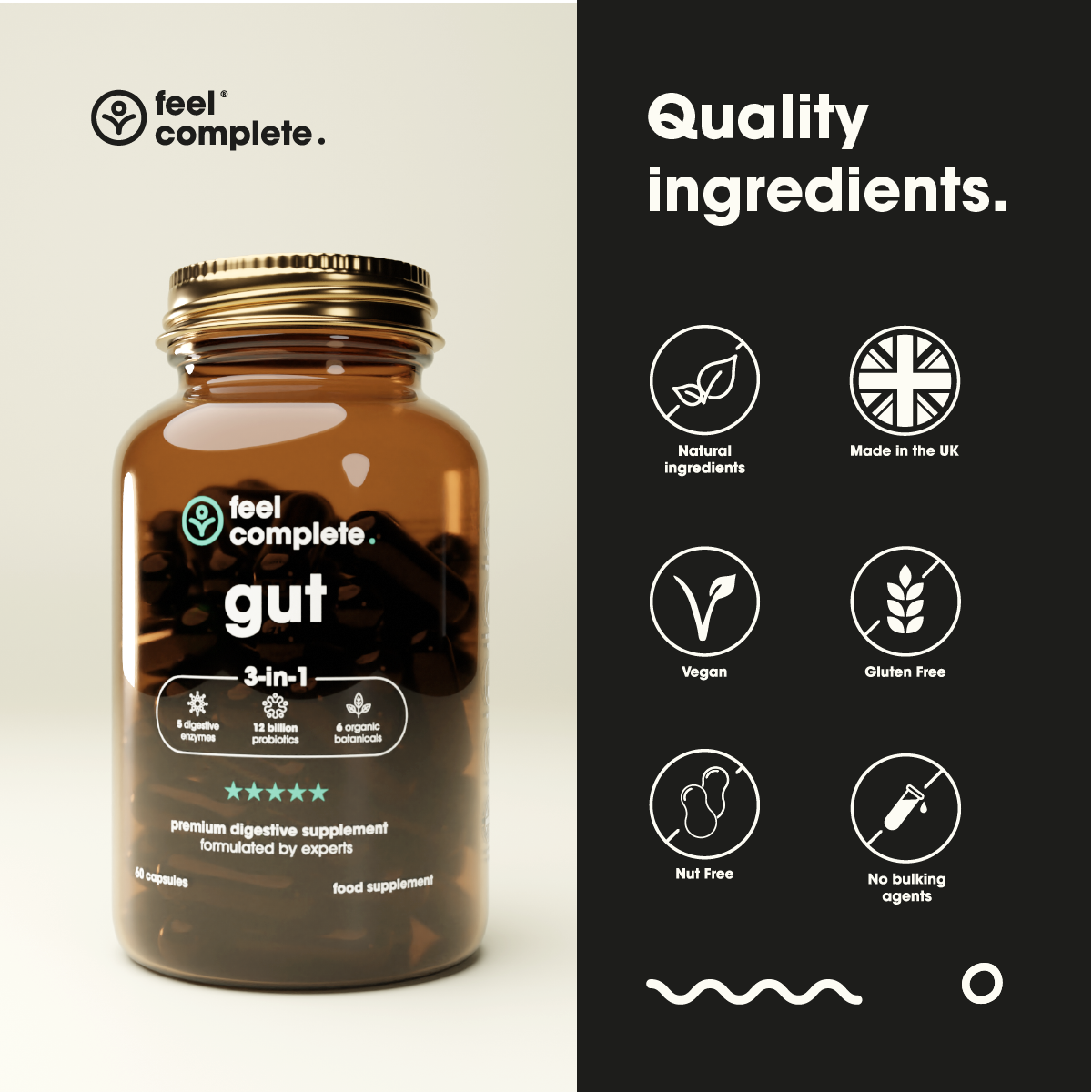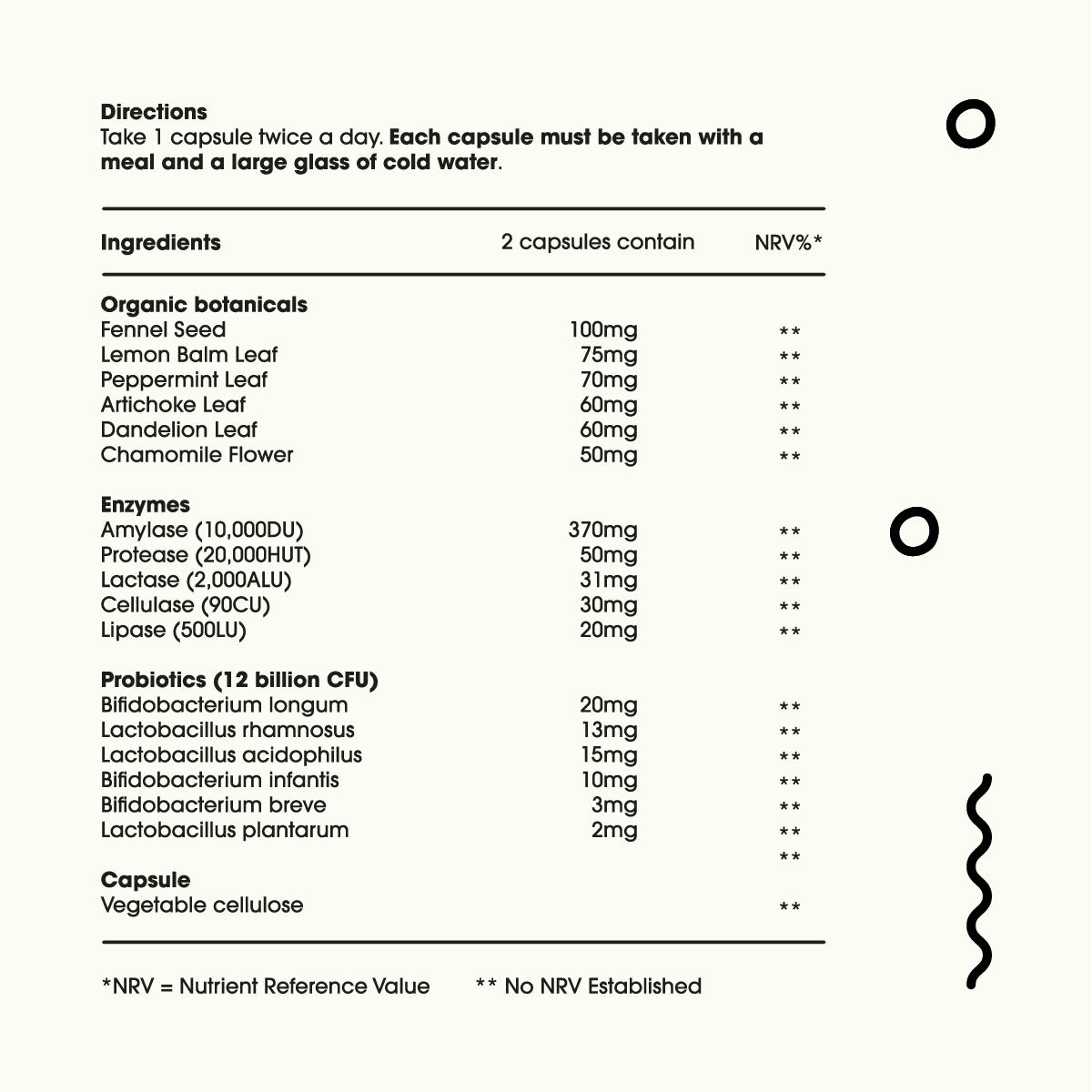It's late at night or the following day, and you're desperately googling, "How to fall asleep" because sleep has a way of evading you. We know the feeling. And no, you're not alone.
With 1 in 5 people in the UK not getting enough sleep, it's time we found ways to put poor sleep to bed. So whether you occasionally spend your nights tossing and turning or on regular basis, we have some great tips to help you sleep like a baby.
How to fall asleep and stay asleep
Sleep. We all need it. Some of us get enough of it, but many of us struggle with it. It's easy for us to shrug it off and think nothing of sleeping poorly a few times a week.
But there's nothing that says you have to settle for poor sleep. On the contrary, you can take back your sleep with diet and lifestyle changes. But first, here's a little secret: you can't just learn how to fall asleep and stay asleep. You also need learn what's preventing you from getting the shut-eye you need.
With that said, here are some of the sneaky saboteurs that are stealing your sleep so you can finally know how to fall asleep and stay asleep.
Blue light and sleep
Binge watching Netflix or scrolling through social media sounds like a great idea before bedtime. But the truth is, your electronic devices (phone, laptop, TV, etc.) emit harmful artificial light called blue light. This artificial light suppresses your brain's ability to produce melatonin – a key hormone that regulates your sleep cycle.
And guess what? The less melatonin your brain releases, the harder it's to fall asleep.
Solution: To help you fall asleep faster, avoid using any electronics up to 2 hours before bedtime. This will allow your brain to slowly wind down and prepare you for a good night's sleep. If you MUST use your electronics, get yourself blue light blocking glasses to reduce the negative side effect of this artificial light.
Want sleep solutions that compliment your life? Try our one month intensive programme, where you will get to work with a nutritionist to create a personal plan to optimise your sleep and overall health. Join here.
Nutrition and sleep
A greasy kebab or a nice big meal (even if it's healthy) before bedtime sounds like a great idea – especially if you've been too busy during the day to eat a proper meal. But the quantity and quality of the food you eat plays a big role in your sleep quality.
This is because as you're trying to sleep, your digestive system is working hard to digest that big meal you had. While your body is perfectly capable of doing more than one thing at a time, for many people, sleeping and digesting food at the same time aren't well suited!
If you had junk food like the previously mentioned kebab, pizza, burgers, or other ultra-processed snacks, then your body will also have trouble sleeping well. Why? Because your gut and brain are connected, and if you eat junk, then this directly impacts your brain and thus, your sleep.
But worst of all, those who struggle to fall asleep are more likely to crave junk food, which in turn leads to health issues like depression, obesity, and diabetes. A vicious cycle? You bet!
Solution: If you like a big meal for dinner, try to eat this 2-3 hours before bedtime. If it's not possible, eat a lighter dinner so that your stomach has the time to digest what you eat before you hit the sack.
Thyroid problems and sleep
Did you know that thyroid imbalances are linked to poor sleep? In particular, having hyperthyroidism – a condition where your thyroid is overactive – can over-stimulate your nervous system. This can lead to symptoms that can make it difficult to fall asleep such as anxiety, night sweats and rapid heart rate.
Solution: You can improve your thyroid symptoms at night by supporting your body with a healthy diet, keeping your bedroom cool and taking a warm bath before bed. A high-quality magnesium supplement can also do wonders for you. This important mineral helps us relax and support restful sleep. Sadly, many of us are deficient in this mineral, which means our sleep quality suffers.
Note: Most people who have thyroid dysfunction don't even know they have it. If you have unexplained symptoms such as fatigue, weight gain, constipation, depression and muscle aches or weakness, to name a few, get your thyroid checked. You can do this through your local GP or do a private blood test.
Poor sleep hygiene
Another thing that could be stealing your sleep is poor sleep hygiene. We don't often think about it, but the hours leading up to our bedtime can greatly influence the quality of our sleep. Sleep hygiene is basically your routine before and at bedtime. A bad bedtime routine can seriously compromise your sleep and most of the time you won't even know why!
Solution: Learn to practise good sleep hygiene. In simple terms, pay attention to your bedroom environment before bed. Be consistent with your sleep time every night and create a relaxing bedtime routine that helps you unwind physically and mentally.
For example, make your room temperature optimal for sleep, don't bring electronic devices to your bedroom, light some non-toxic candles or spray lavender in your room. Before bed, take a nice shower or warm bath and wear comfortable sleepwear. The more you prepare your body and brain for a restful night's sleep, the easier it will be for you to fall asleep and stay asleep.
Sleep anxiety
Many of us struggle to fall asleep because we're anxious about falling asleep. Sleep anxiety is basically about worrying about going to sleep. Most of the time it's because we know we'll struggle to fall asleep or stay asleep. This then becomes a self-fulfilling prophecy as many people will struggle to sleep because of their anxiety.
Solution: If this is you, don't panic. There are many ways you can reduce your anxiety surrounding sleep. For example, lemon balm is a great herbal sleep aid that can help reduce sleep disorders including insomnia.
Side note: Lemon balm is one of the 6 herbs in our premium gut 3-in-in 1 supplement. Go here to see if you're eligible for a free trial of our digestive supplement!
Bottom line
Sleep is a keystone to health and the quantity and quality of your sleep determine so many things. For example, your productivity level, mood, ability to learn and remember things, and your overall health are dependent on whether you had a good night's sleep.
The secret to a good night's sleep starts with understanding what's stealing your sleep. Once you know this, sleep no longer becomes the stuff nightmares are made of!






